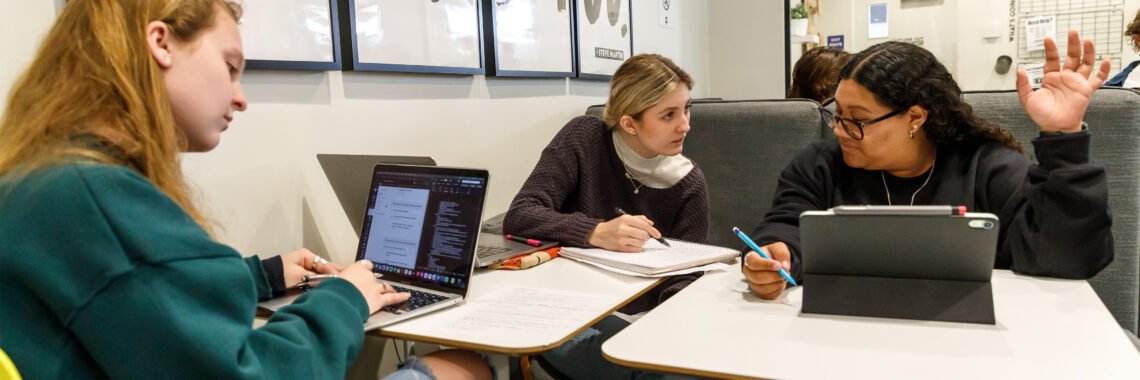My husband, Dave, and I keep joking that we’ve stumbled upon the perfect idea for a coffee table book. It’s inspired by our kids and their hilariously underwhelming reviews of what should be incredible experiences. Over the years, they’ve been fortunate to take part in some pretty spectacular activities, but their takeaways? Well, they’re something else.
A couple of years ago, Dave took our kids to NASA’s Space Camp in Alabama. They got to experience the wonders of space exploration, including what it feels like to be in zero gravity. There was so much learning packed into that adventure that I could go on and on about it. But one of them (who shall remain nameless to protect the not-so-innocent) summed it up with the following review:
“It wasn’t as bad as I thought it would be.”
Thus, the idea for our coffee table book was born. It would feature these mediocre reviews from our kids, like another gem after visiting Mammoth Cave National Park, one of the most stunning places to marvel at God’s creation, one of our kids said: “It was pretty meh. Not great, not bad. Pretty okay.” Can you picture it now? A coffee table book full of gems like these, capturing responses to questions such as, “How was your day at school?” “Regular.”
What We Focus on Grows
How this connects to our teaching and what lessons might we draw from these reviews? One reason this happens, both in our kids’ reactions and in our teaching experiences, is that what we pay attention to grows. Stephen Covey often described this dynamic in his books. He stressed that the paradigms we use to see the world impact our view of it. “If you want small changes in your life, work on your attitude. But if you want big and primary changes, work on your paradigm,” he shared.
How many of us do this with course evaluations? I know I’ve been there. We receive heaps of positive feedback on a class we’ve poured our heart into, but then there’s that one critical comment. And that’s the one that sticks with us, growing larger in our minds than all the rest combined. The feedback from students that we focus on can overcome the overwhelmingly positive comments from students and make us question our overall effectiveness as educators. Sound familiar?
Asking Better Questions Leads to Better Feedback
Another reason for these “meh” reviews—whether from our kids or our students—comes down to how we ask the questions. Our kids know about our coffee table book idea and think it’s funny, so they’ve started exaggerating their feedback to fit the book. In a similar way, the way we frame questions to students can shape the kind of feedback we get.
I used to ask students, “Why are you taking this class?” Now, I ask more specific questions, like, “Why are you taking a class about business ethics?” or “Why are you taking a class about personal leadership and productivity?” The answers have become richer and more nuanced with just a slight shift in phrasing.
As a teaching community, it’s worth exploring how the questions we ask in course evaluations can help us get more useful information. Small tweaks can lead to more meaningful feedback.
Encouraging Reflection: The Power of Metacognition
Our educational systems can sometimes lean too heavily on industrial models that don’t always emphasize reflection on individual and collective learning. This type of reflection—known as metacognition—is essential for deeper learning. Stephen Brookfield advocates for using tools like the Critical Incident Questionnaire, which prompts students to reflect regularly on their learning. When the primary mechanism for feedback on how students are experiencing their learning comes at the end of a course, we aren’t in a position to make any adjustments for that particular group of learners, or to glean further information about what might have improved upon their time in the course.
Course evaluations often feel transactional. They happen at the end of a term, and sometimes students can’t even access the evaluations in Canvas, because we are trying to increase participation rates and lock them out. We’re constantly balancing between wanting feedback from as many students as possible, while also wanting meaningful and constructive feedback.
The Role of Bias in Feedback
Lastly, bias plays a significant role in how people perceive and evaluate experiences. When our kids give less-than-glowing reviews, it often has more to do with their expectations going in, not the experience, itself. The same thing happens with course evaluations. Research overwhelmingly supports the idea that bias impacts student evaluations, often in ways that are less about the teaching and more about the preconceived ideas students bring with them.
Join the Conversation
If you’re interested in diving deeper into this topic, we’d love for you to join us on October 29th for a discussion on the effectiveness and limitations of traditional course evaluations. Your input will help us rethink and shape a more reflective and supportive evaluation system at Vanguard University.
We hope to see you there! But if you can’t make it, don’t worry—there will be other ways to share your thoughts and learn more about these topics. We’re also planning a pilot in the spring surrounding students’ evaluations of teaching, with a full rollout of a new course evaluation process in Fall 2025. Your insights and input will be key to making this system more effective for all of us.




